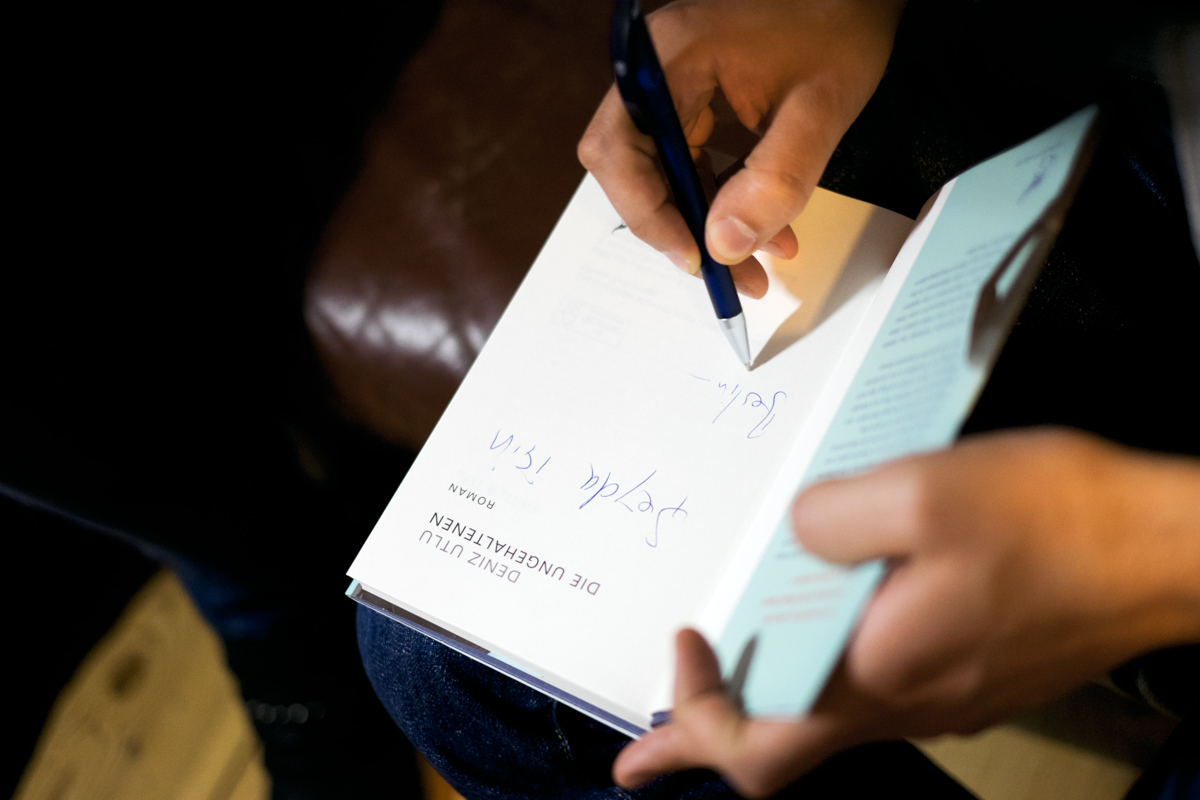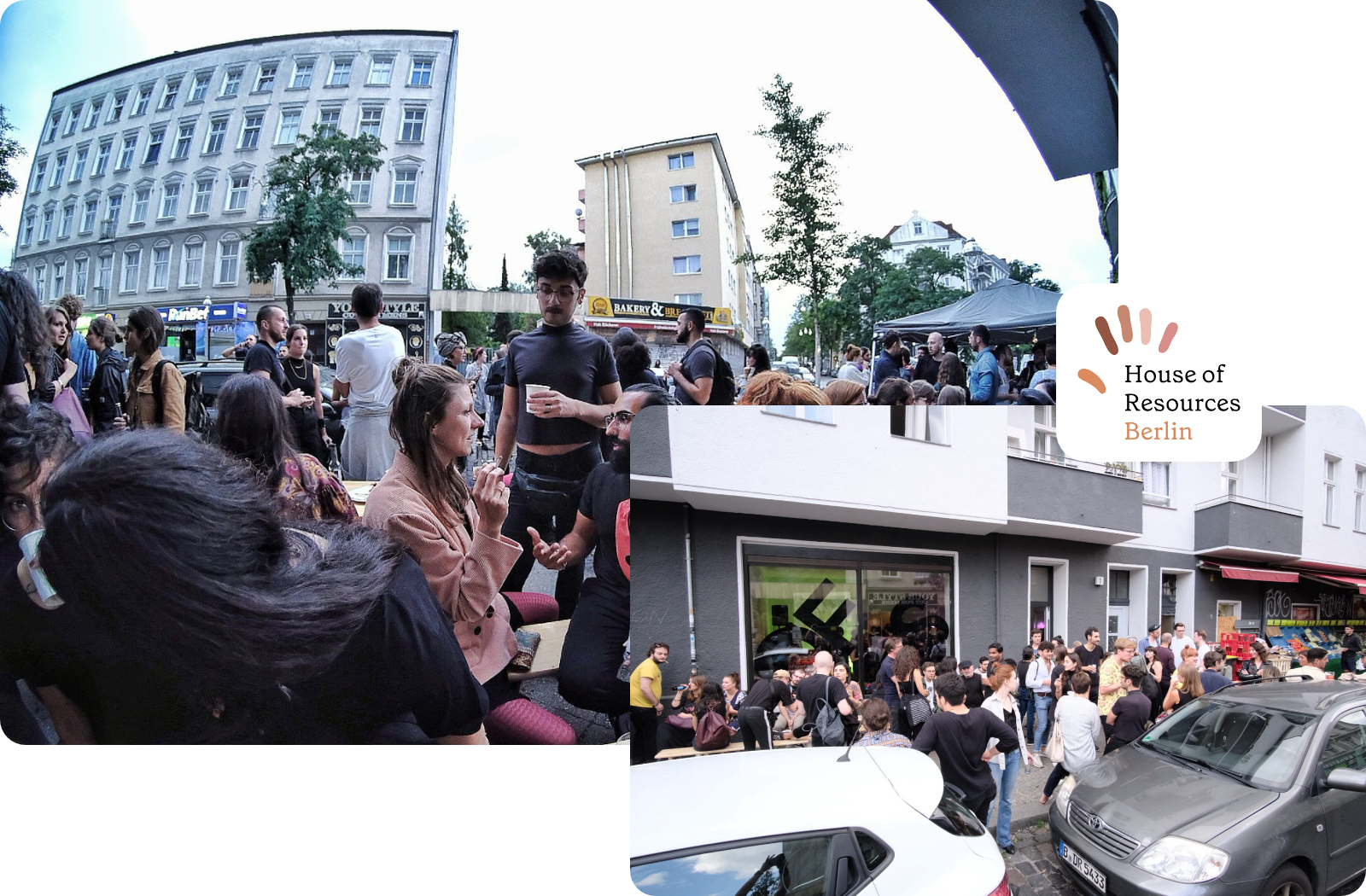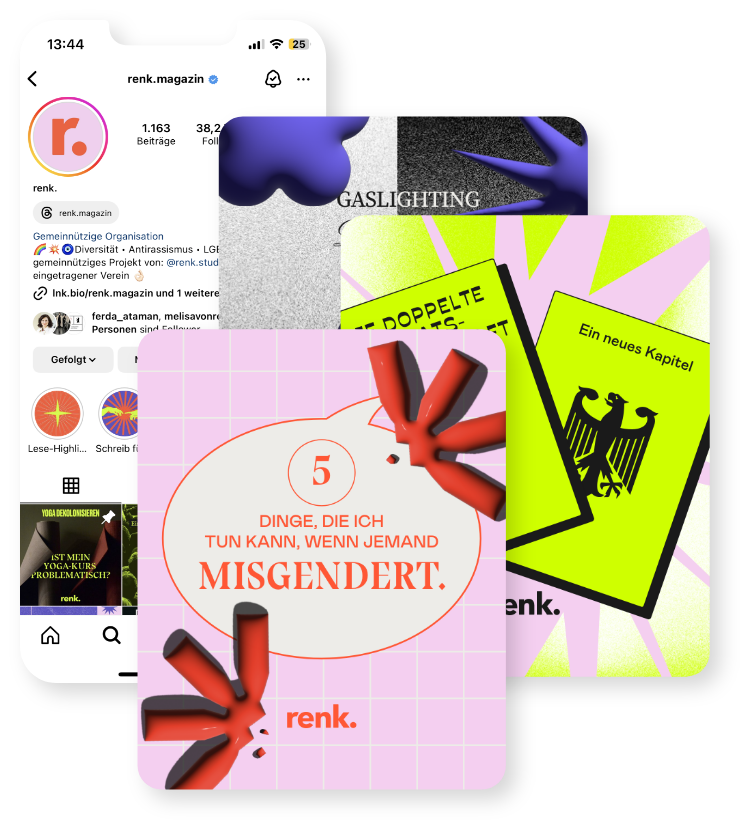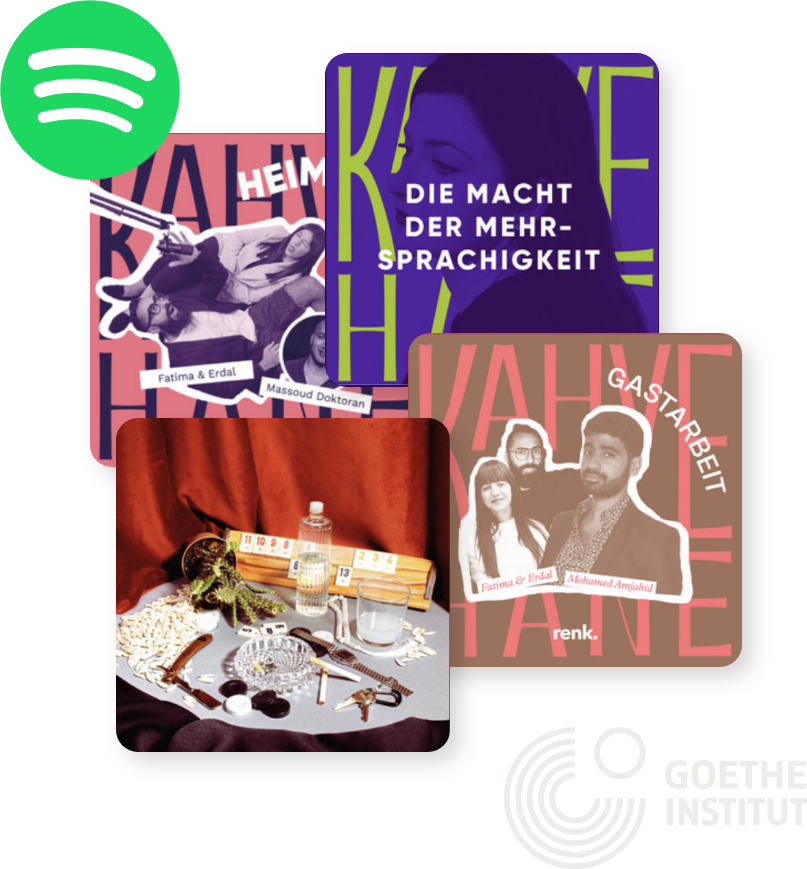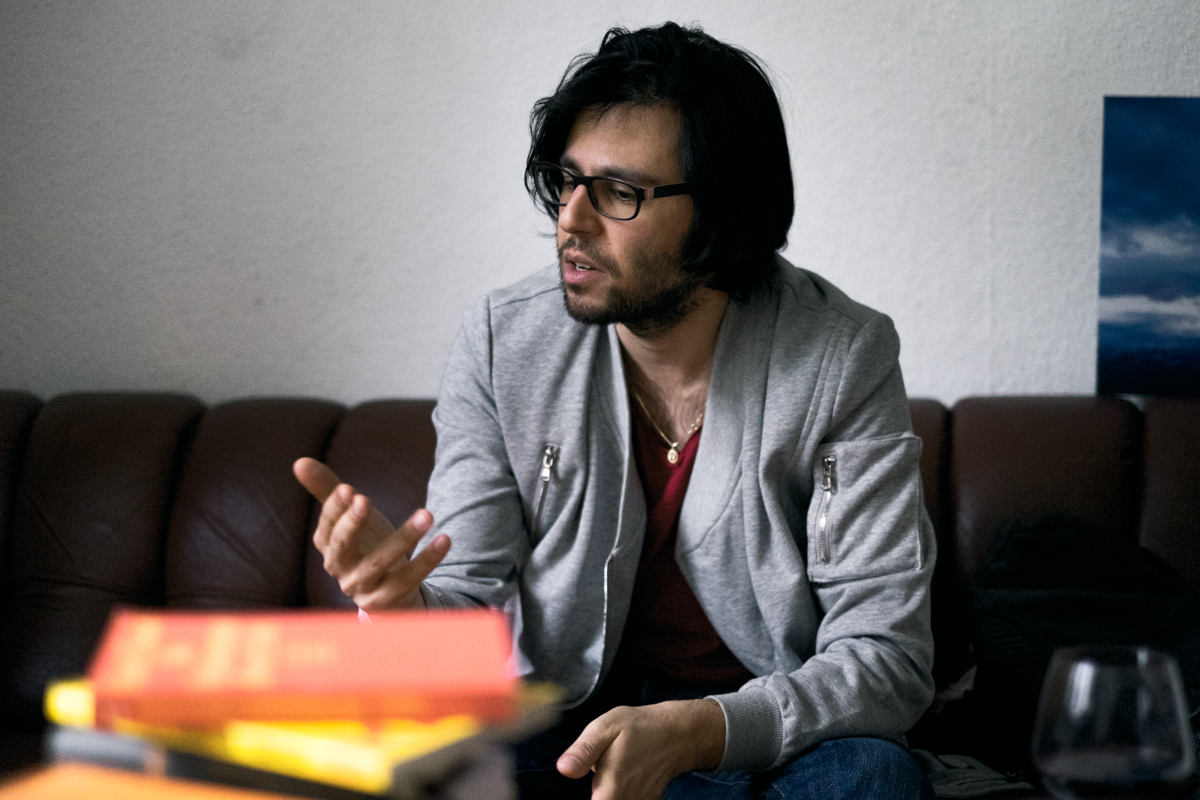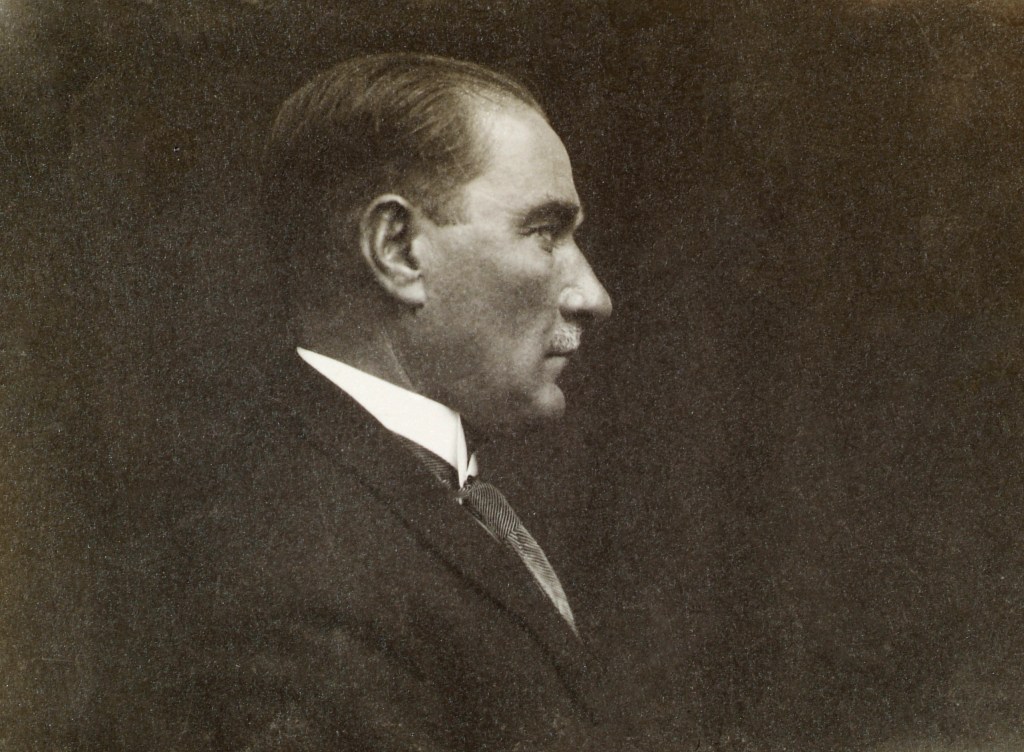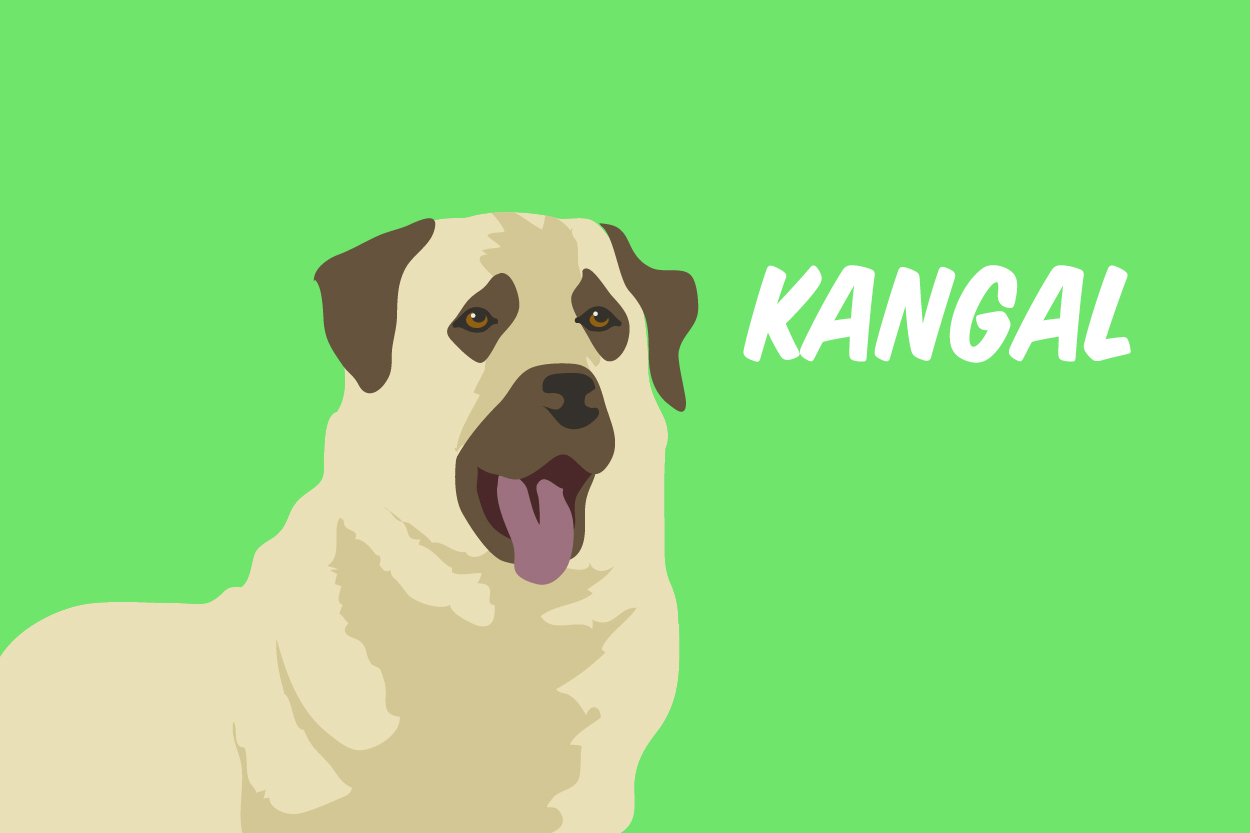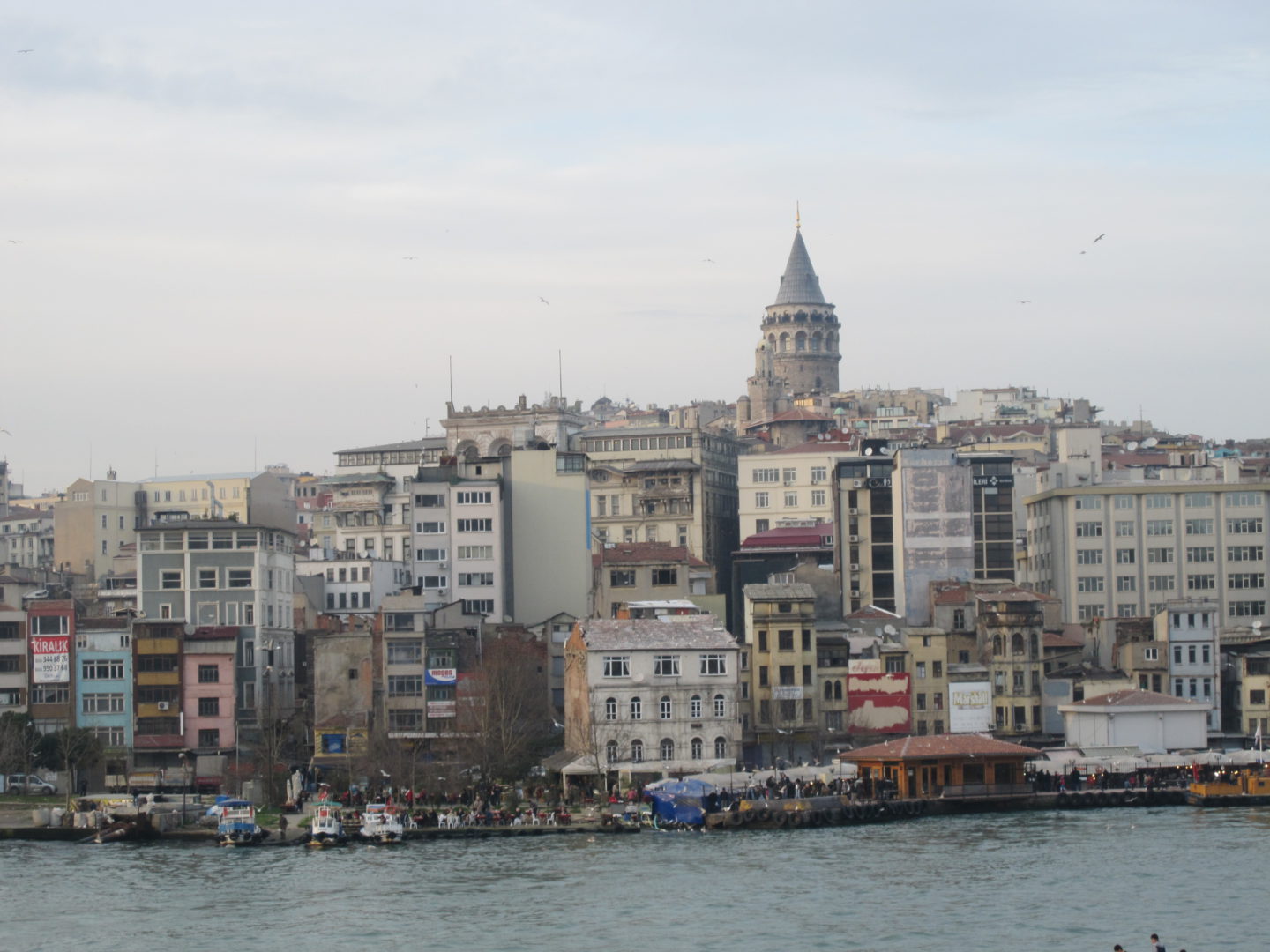The cake is finished, the photographer ready, the meeting with author Deniz Utlu is finally upon us. After trying to find a suitable time for months, we are finally able to conduct our long-awaited interview. He invited us to his flatshare.
Before the time we’d agreed upon, I meet with Nikolai, our photographer, and go over the plan once again. We discuss the prepared questions, and I have to admit that I’d have rather asked simple questions such as »What is your favourite colour?« or »What is your favourite animal?« And more than anything else, the first thing I’d like to find out is where his parents from Turkey are from. It is a question that even German-Turks in the third or fourth generation ask each other in order to explore certain similarities. Although these questions are on the tip of my tongue, first we discuss his work and his novel The Indignants.
The Bookworm
Deniz welcomes us into his flatshare room, which appears to me as like a private library. The question I was curious about – whether or not he can speak and read Turkish – answers itself immediately. German, English, French and Turkish books are stacked a metre high. The room in the bookcase has long been insufficient, so that the table before us must serve as storage. Diverse magazines and newspapers nicely adorn the book mosaic. In contrast to it all stands his guitar, which he enjoys playing as a change from his word-filled life. I am quite impressed by the amount of the books and ask him if he’s actually read them all. After pondering for a moment, he answers charmingly with a Yes.
The Play The Indignants
In the meantime, he serves us drinks and the cakes with fruit that we’d brought with us. We all enjoy the fluffy pastry, still warm, and the atmosphere slowly becomes more relaxed. I discover a flyer on the table with the title The Indignants and learn that his novel has been reworked into a drama by Hakan Savaş Mican and Necati Öziri, and will be part of the June program of the Gorki-Theater. He is very happy that of all people it is Mican who worked on it, because he has an emotional connection to the material. During the development process, Mican was allowed to read an important chapter of the novel so that he had first ideas of a dramatization due to this rough draft.
Deniz’s Debut Novel
Even if there are some parallels between Deniz and his main character, Elyas, the novel is not a biographical re-narration. Only the emotions, with which he works and he himself knows, are more strongly emphasized. He tries simply to blurrily sketch the feelings he doesn’t know. The figures in The Indignants often make decisions that Deniz would avoid in the same situation. Yet they still feel similar. Many a reader will certainly be able to understand Elyas’ world of emotions as he dives into the Berlin party scene and is torn between supposed freedom and the responsibility towards himself and his family. He finds some orientation in life when he falls in love and suddenly begins to grapple with his own background. In doing so, Deniz attempts to encourage the reader to think purposefully and skilfully about one’s own family history. After this first-class debut novel we are sure to read and hear more of Deniz Utlu.
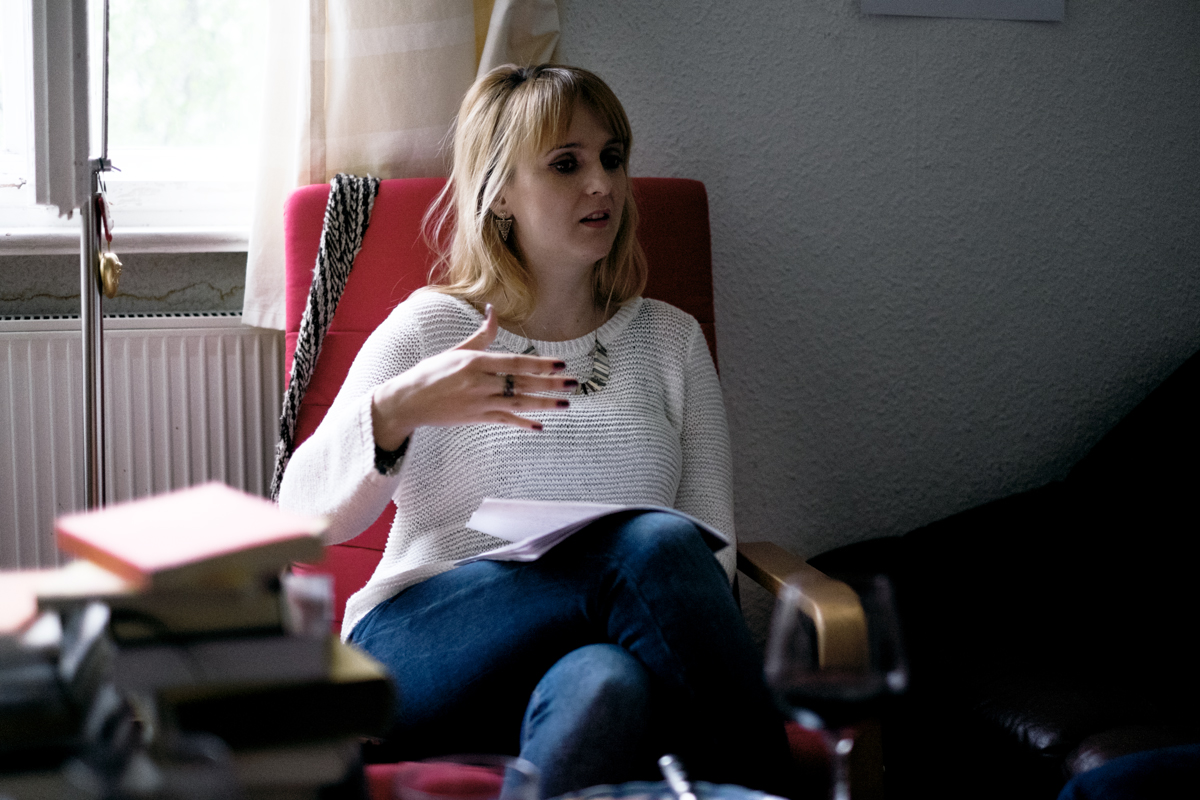
Deniz’s Multifacetedness
After some beginning small talk, I start asking my first questions. Although I read a lot about Deniz and meticulously prepared myself, the first question is a complete flop. I describe his parents as guest workers, but I learn they did not come to Germany with the recruitment agreements. His father did put in his shifts as a labourer in a VW plant, but was simultaneously matriculated at a German university. It is here that I discover the first parallels to the main character from his novel: Elyas’ father also works as a shift worker in order to finance his studies.
Deniz sums up his childhood unceremoniously: »My childhood was full of happiness, sadness and everything that goes with it« He grew up in Hannover and came to Berlin to study. While becoming an adult, he became interested in the realities of life, especially those of workers and migrants. Sadness, fear, anger, self-discovery and loss shaped his idea of humanity, as well as the search for solidarity, and became central themes in his works. As a 16-year old student he began to present his texts at readings. After his A-levels he decided to study economics. He was especially interested in what kind of action could be useful to the average citizen. This knowledge plays a leading part while writing, he discloses to me. When he curated a reading in the Ballhaus in Naunynstraße for the 50-year anniversary of the recruitment agreement, new ideas for essays began stirring in him. It seems to me as if every place is a source of inspiration for Deniz.
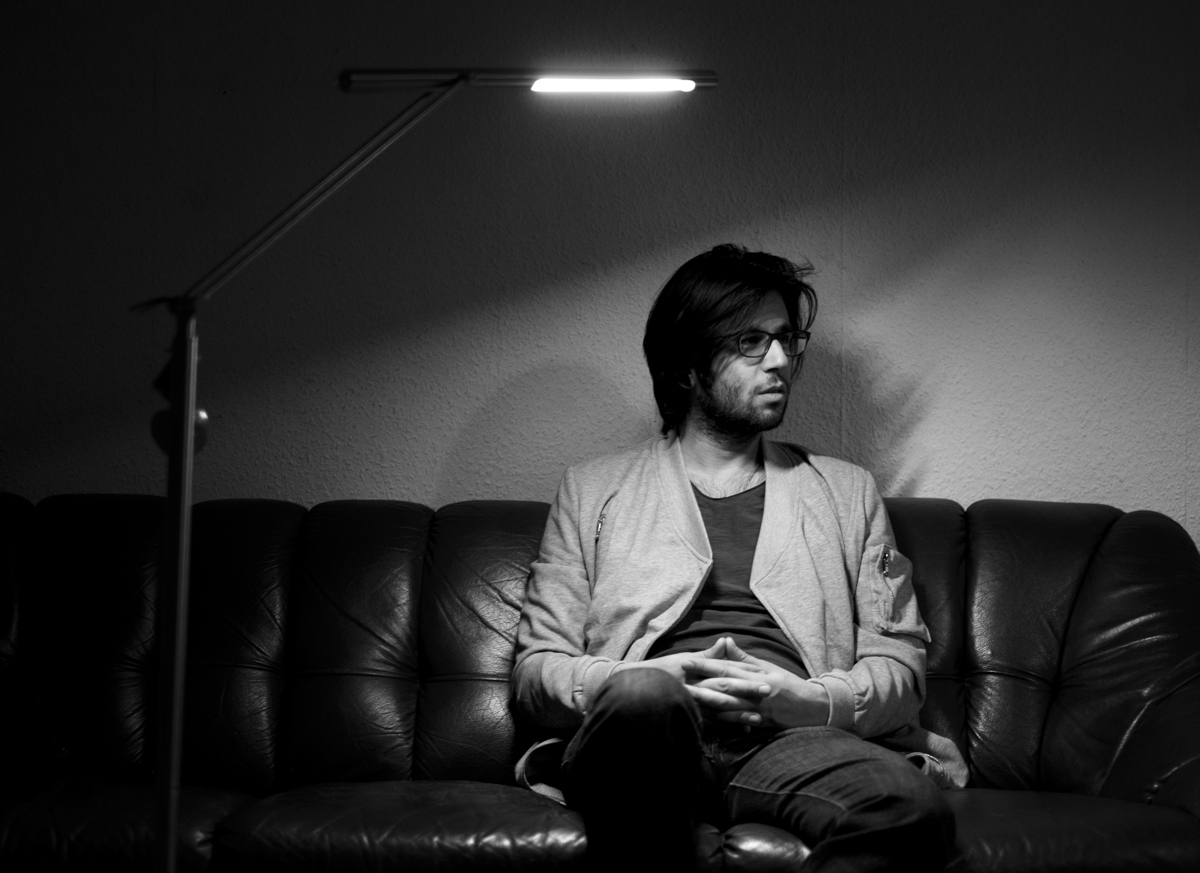
The »Not-forgetting«
For Deniz Utlu, the »not-forgetting« is a fundamental building block in his works. In 2011 he wrote an essay titled The Archive of Migration. In this archive, poems and stories written by guest workers, which, unsorted, were consigned to their fates and fell into obscurity, gather dust. »But I won’t let that happen«, counters Deniz with a firm and convincing voice. A further parallel to his main character, Elyas? When I ask him about is, a smile comes across his face. Deniz admits that there are certain similarities between himself and Elyas.
Deniz continues his remarks about the topic of not-forgetting, and speaks about the radicalisation of the thought of unity. He believes unity in humanity is desirable. But as soon as a truth or a story is told by only one group, the idea of unity would gain anti-democratic characteristics. The past thematic is omnipresent.
At the end of the interview, the cake has been eaten, Nikolai shoots the last photos and I ask my three favourite questions, to which I receive the answers: His favourite colour is red and his favourite animal the deep sea fish. His parents come from Mardin. It doesn’t surprise me that his favourite animal is a fish. Fish play a central role in many of Deniz’ texts – his name means »Sea« in Turkish.
